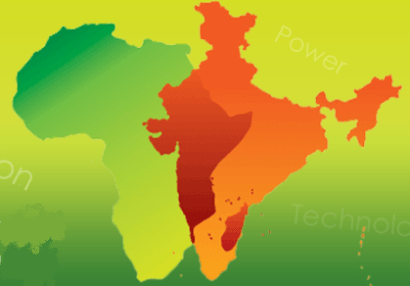India-Africa partnership to be a defining moment in a changing world
By IAR DeskIDSA’s Africa Day Commemoration has become a platform to reinforce India’s relations with its African partners

New Delhi: The India-Africa partnership is going to be an important and a defining partnership towards addressing the challenges of the changing world, as the partnership witnessed increasing development cooperation between India and the African countries.
Underlining this significance, Mr. T.S. Tirumurti, Secretary (ER), Ministry of External Affairs of India, said that India’s partnership with the continent is demand driven and is based on a model of cooperation which is responsive to the needs of the African countries. India hopes to build genuine partnership with Africa, he added, noting that there was immense potential for deepening India’s engagement with the continent.
Mr. Tirumurti was speaking at fourth Africa Day Round Table ‘India-Africa Partnership in a Changing World’ organised on May 29, 2019 by the Institute for Defence Studies and Analyses (IDSA), to commemorate Africa Day, celebrated each year on May 25. The themes discussed were Africa in the global order and the India-Africa partnership.
Mr. Tirumurti said that the 10 guiding principles enunciated by the Indian Government for enhancing cooperation with Africa would take the relationship to greater heights and unlock the immense potential that the partnership holds. The India-Africa engagement is not limited at the bilateral level, but the two regions enjoy diplomatic mechanisms at continental, regional as well as multilateral levels, he added.
Speaking on the trade relations, he stated that India-Africa trade has multiplied and diversified in the last 15 years. India is ranked as the third largest export destination and the fifth largest investor in Africa, with sizeable investments in oil and gas, mining, banking, pharma, textile and other sectors.
Indian investments in Africa are close to US$ 30 billion, and have contributed immensely to job creation in Africa.
Director General, IDSA, Amb. Sujan R. Chinoy in his welcome address dedicated the event to the eternal memory of Mahatma Gandhi, as the nation celebrates150th Birth Anniversary of the Father of the Nation. Amb. Chinoy added that IDSA’s Africa Day Commemoration has become a platform to reinforce India’s relations with its African partners. He added that the India-Africa partnership would continue to receive special attention from the Indian government led by Prime Minister Shri Narendra Modi.
The earlier Modi-led NDA government had put in considerable time and effort to deepen ties with African countries, and build enduring partnerships. Modi had visited a number of African countries; his tenure saw the India-Africa summit, where 40 heads of state or government from Africa participated while all 54 African countries attended; and the President of Republic of South Africa was the chief guest at India’s Republic Day celebrations in January this year.
Stating that India is a reliable development partner for Africa, Director General, IDSA spoke about collaborating with Japan, US and UAE for a trilateral partnership with Africa. Just as India is among the leading economies of the world, several African countries also feature in the IMF’s list of fastest developing economies, he added. Both India and Africa have the advantage of a youthful population.
Amb. Woldemariam of Eritrea and Dean of Africa Group, described India’s contribution to Africa’s development as commendable, adding that India and Africa have a long and rich history of interaction marked by cultural, economic and political exchanges based on the principle South-South cooperation.
India and Africa can cooperate in the areas of climate change, counter-terrorism, cyber security and achieving sustainable development goals, he noted.
The event was attended by a large number of African Heads of Missions, Diplomats, members of Indian industry, officials of EXIM Bank and former Ambassadors of India to various African countries and scholars of African studies